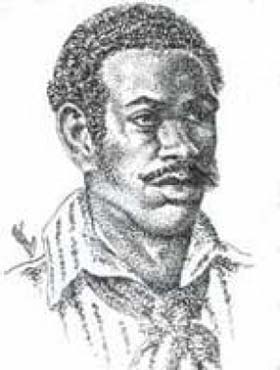|
José Antonio Aponte
José Antonio Aponte, often known as “Black” José Aponte, (died April 9, 1812, in Havana) was a Cuban political activist and military officer of Yoruba people, Yoruba origin who organized one of the most prominent slave rebellions in Cuba, the Aponte Conspiracy of 1812. He held the rank of first corporal (''cabo primero'') in Havana's black militia, and was the leader of his local Yoruba people, Yoruba association. Aponte, a free black carpenter in Havana, was proclaimed to be the leader of a plot to rebel against the Cuban government, free the slaves and uplift free people of color, and overthrow slavery in Cuba. The movement struck several sugar plantations on the outskirts of Havana, but it was soon crushed by the government. Aponte created a book of drawings that is claimed to have been the blueprints for the rebellion of 1812, for which he was convicted along with eight of his cohorts. He was eventually caught and hanged on April 9, 1812. He was then decapitated, and his ... [...More Info...] [...Related Items...] OR: [Wikipedia] [Google] [Baidu] |
Havana
Havana (; Spanish: ''La Habana'' ) is the capital and largest city of Cuba. The heart of the La Habana Province, Havana is the country's main port and commercial center.Cuba ''''. . The city has a population of 2.3million inhabitants, and it spans a total of – making it the largest city by area, the most populous city, and the [...More Info...] [...Related Items...] OR: [Wikipedia] [Google] [Baidu] |
18th-century Births
The 18th century lasted from January 1, 1701 ( MDCCI) to December 31, 1800 ( MDCCC). During the 18th century, elements of Enlightenment thinking culminated in the American, French, and Haitian Revolutions. During the century, slave trading and human trafficking expanded across the shores of the Atlantic, while declining in Russia, China, and Korea. Revolutions began to challenge the legitimacy of monarchical and aristocratic power structures, including the structures and beliefs that supported slavery. The Industrial Revolution began during mid-century, leading to radical changes in human society and the environment. Western historians have occasionally defined the 18th century otherwise for the purposes of their work. For example, the "short" 18th century may be defined as 1715–1789, denoting the period of time between the death of Louis XIV of France and the start of the French Revolution, with an emphasis on directly interconnected events. To historians who expand ... [...More Info...] [...Related Items...] OR: [Wikipedia] [Google] [Baidu] |
Executed Cuban People
Capital punishment, also known as the death penalty, is the State (polity), state-sanctioned practice of deliberately killing a person as a punishment for an actual or supposed crime, usually following an authorized, rule-governed process to conclude that the person is responsible for violating norms that warrant said punishment. The sentence (law), sentence ordering that an offender is to be punished in such a manner is known as a death sentence, and the act of carrying out the sentence is known as an execution. A prisoner who has been sentenced to death and awaits execution is ''condemned'' and is commonly referred to as being "on death row". Crimes that are punishable by death are known as ''capital crimes'', ''capital offences'', or ''capital felonies'', and vary depending on the jurisdiction, but commonly include serious Offence against the person, crimes against the person, such as murder, mass murder, Aggravation (law), aggravated cases of rape (often including child s ... [...More Info...] [...Related Items...] OR: [Wikipedia] [Google] [Baidu] |
Yoruba Activists
The Yoruba people (, , ) are a West African ethnic group that mainly inhabit parts of Nigeria, Benin, and Togo. The areas of these countries primarily inhabited by Yoruba are often collectively referred to as Yorubaland. The Yoruba constitute more than 42 million people in Africa, are a few hundred thousand outside the continent, and bear further representation among members of the African diaspora. The vast majority of the Yoruba population is today within the country of Nigeria, where they make up 21% of the country's population according to CIA estimations, making them one of the largest ethnic groups in Africa. Most Yoruba people speak the Yoruba language, which is the Niger-Congo language with the largest number of native or L1 speakers. In Africa, the Yoruba are contiguous with the Yoruboid Itsekiri to the south-east in the northwest Niger Delta, Bariba to the northwest in Benin and Nigeria, the Nupe to the north, and the Ebira to the northeast in central Nigeria. To th ... [...More Info...] [...Related Items...] OR: [Wikipedia] [Google] [Baidu] |



